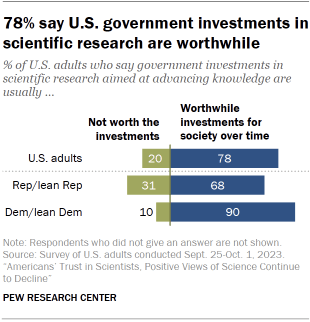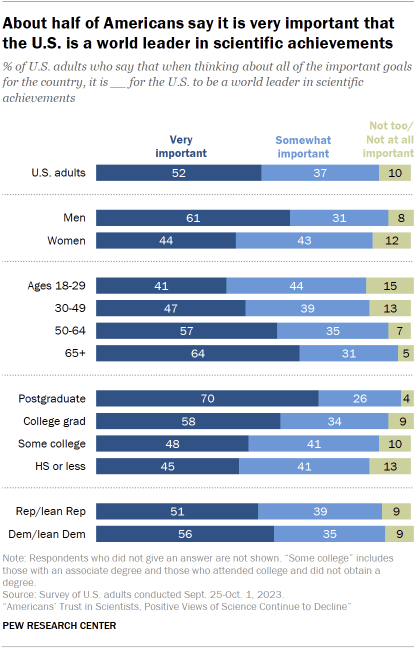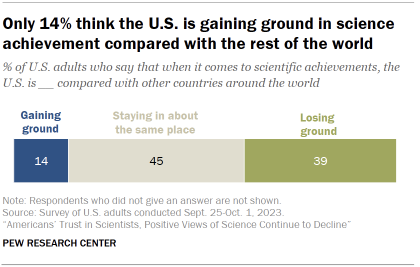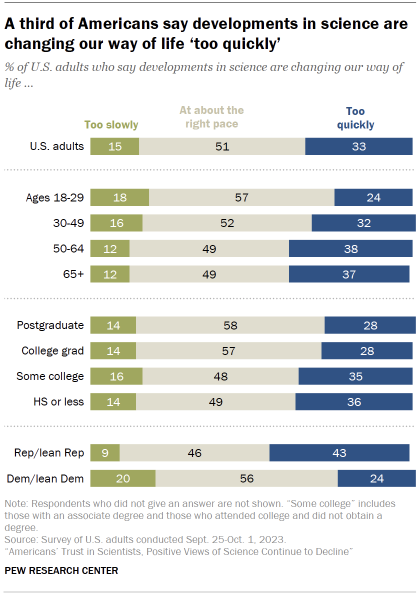Majorities of Americans continue to value government investments in scientific research and think it’s important for the United States to be a world leader in science. But Americans are largely pessimistic about the country’s progress internationally: Few believe the U.S. is gaining ground in scientific achievement compared with other countries around the world.

About eight-in-ten Americans (78%) say government investments in scientific research aimed at advancing knowledge are usually worthwhile for society over time. Far fewer (20%) say investments in scientific research are not worthwhile. Views on this question are similar to a year ago.
Majorities of both Democrats and Republicans say government investments in scientific research are worthwhile. Still, Democrats are much more likely to hold this view than Republicans (90% vs. 68%).
How important is it for the U.S. to be a world leader in scientific achievements?

Overall, 52% of Americans say it is very important for the U.S. to be a world leader in scientific achievements. An additional 37% say it is somewhat important. Just 10% say leading in scientific achievements is not too or not at all important for the U.S.
These shares are similar to when the Center last asked this question a year ago.
Men, older Americans and those with more education are especially likely to say it is very important the U.S. is a world leader in scientific achievements.
Democrats and Republicans have largely similar views on this question: 56% of Democrats and 51% of Republicans say it is very important for the U.S. to be a world leader in scientific achievements.
Views on how U.S. scientific achievements compare with those of other countries

Only 14% of Americans say the U.S. is gaining ground in scientific achievements compared with other countries. A larger share (39%) say the U.S. is losing ground in scientific achievements, and 45% say the U.S. is staying in about the same place relative to other countries.
Refer to the Appendix for more details on how these views differ across groups.
Among those who say the U.S. is losing ground when it comes to scientific achievements, 58% say this bothers them a great deal or quite a bit. Smaller shares say this bothers them some (27%) or a little or not at all (15%).
Science and the pace of change in American life

Science is a driver of innovation and change in society. When asked to consider the pace of change, 33% of Americans say developments in science are changing our way of life too quickly, compared with 15% who say science is changing American life too slowly. The most widely held view among the public is that the pace of change stemming from scientific developments is about right (51%).
Older adults are more likely than younger adults to say developments in science are changing our way of life too quickly.
And those with lower levels of education are somewhat more likely than those with higher levels of education to feel that science is changing things too quickly.
Among Republicans and Republican-leaning independents, about as many say developments in science are changing our way of life too quickly (43%) as say the pace of change is about right (46%). Among Democrats and Democratic-leaning independents, far more say the pace of change spurred by science is about right rather than too quick (56% vs. 24%).




